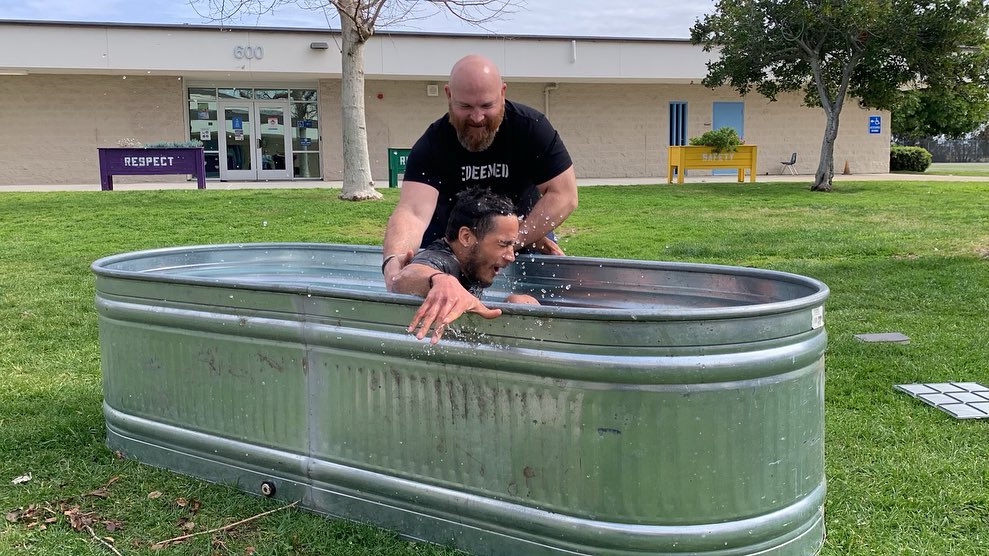What is it like to be married to you? Is it like being married to a celebrity? Or is it like being married to a servant?
Anyone who has been married longer than a few years knows marriage is so good. And marriage is so hard.
In the U.S., about 50% of marriages end in divorce—the 13th highest divorce rate in the world.
Ministry is similar. At times it is so good. And other times it’s devastatingly hard. Now, combine the challenges of marriage with the realities of ministry like:
- The betrayal that comes with ministry
- The depression that comes with ministry
- The fishbowl living that comes with ministry
It’s not unusual for us to wonder if we’re built for this. If we can do this. If we (and our families) are going to make it on this church planting journey.
The mystery of marriage
I grew up on a steady diet of rom-coms and 80s R&B love songs like K-Ci & JoJo. Like so many others, I was drawn to these songs and movies in part because they make love look so easy, so good. These idealized representations of love make it seem as if you’re in love, it’s not going to be any work, that it will simply come naturally.
When faced with conflicting views from society and popular culture, our orthopraxy must come from our orthodoxy. Our theology tells us marriage is an incredible blessing instated by God. But it’s also going to be a blessing we must fight for.
Marriage is like crossing the finish line of a marathon. There’s no greater joy than finishing the race, but it’s only going to happen if you’re willing to suffer, and to the degree you’re willing to endure pain and cross a gauntlet of blood, sweat and tears.
In Ephesians 5:31-32 Paul writes, “For this reason a man will leave his father and mother and be joined to his wife, and the two will become one flesh. This mystery is profound…”
The word “mystery” in the Greek is mustérion. The only other place Paul uses this word is to talk about the manifest mystery of the gospel. God will do something even greater than bringing man and woman together. He is going to bring a holy God and a sinful man, together as one.
Paul uproots the word from its context between God and man and replants it in the context and man and woman, not only to talk about the kind of unity and the closeness we would share, but also to talk about the fact that we are the greatest representation of the love God has for us.
 He goes on to say in Ephesians 5:32, “This mystery is profound, but I am talking about Christ and the church.” Christ gave Himself for the Church.
He goes on to say in Ephesians 5:32, “This mystery is profound, but I am talking about Christ and the church.” Christ gave Himself for the Church.
As pastors and church planters, the greatest presentation of the gospel we can make is not what we do on Sunday morning. The greatest presentation of the gospel is what we do every day of the week in our homes.
Ephesians 5:25-26 says, “Husbands, love your wives, just as Christ loved the church and gave himself for her to make her holy, cleansing her with the washing of water by the word. He did this to present the church to himself in splendor, without spot or wrinkle or anything like that, but holy and blameless.”
In other words, Christ gave Himself for His bride (the Church), and now it’s our turn. Now it’s our turn to give ourselves up for our brides. As pastors, we’re so good at preaching and expositing this, but it’s deeply hard to live it.
Sometimes, as planters we assume that because we’re called to plant a church and preach the gospel, then we need to find someone to help us carry this incredibly heavy burden. And if we’re not careful, a translation of that may be that we’re a celebrity who needs to find a really good servant.
But Jesus didn’t have that mentality or posture — and he was an important person, with an important ministry. Even as Jesus was on the cross bearing the sins of humanity, He is in a place of service as he says, “Father, forgive them, because they do not know what they are doing,” (Luke 23:34).

Living the gospel in private
This isn’t just a problem for our generation of pastors. It’s been a problem that has existed throughout time. John Wesley, one of the greatest circuit writers and preachers of the gospel didn’t show up to his wife’s funeral. And George Whitefield was so good at preaching on the streets of Boston, but he wasn’t very good at keeping that zeal in the heart of his own home.
So, how do we know when we’ve taken our calling to an unbiblical place? When we use the Scriptures to use others, and when we use our calling as justification to cheat on our spouse with a mistress called the church.
It isn’t about how well you preach the gospel in public. Most of us preach the gospel in public. Perhaps a more important question is: how well do you live the gospel in private?
When my wife Andrea and I started the church, we heard the unfortunately common statistic that 80% of church plants close. And we figured our would be one of them. I assumed my church would become another statistic. I know that’s strange to read.
But here was my mentality: if I lost my church, I didn’t want to lose my marriage and family, too. This is what I prayed:
“Lord, my wife is afraid she’s going to have another workaholic pastor, my children are afraid they’re going to have another workaholic father. We can give this plant 45 hours a week. If you can plant this church off somebody who can give you that amount of time, then we’re your people.”
And so, before we planted, we put a few things in place to ensure the flourishing of our family on our church planting journey:
- My wife and I go on a date every week
- We aren’t allowed to fight on Sunday nights
- We will give this church plant 45 hours a week
This isn’t prescriptive. It’s descriptive. We submitted each of these to the Lord and asked if he would plant a church with these priorities in place.
At the end of this journey, I want my wife to say, “You were a good husband during that time, could we do it again?”
We can love our wives and children the way Christ loved the Church. If we get that right, God just might use us in a powerful way.
Read more about how to love your spouse well on the planting journey.
Published March 9, 2022




